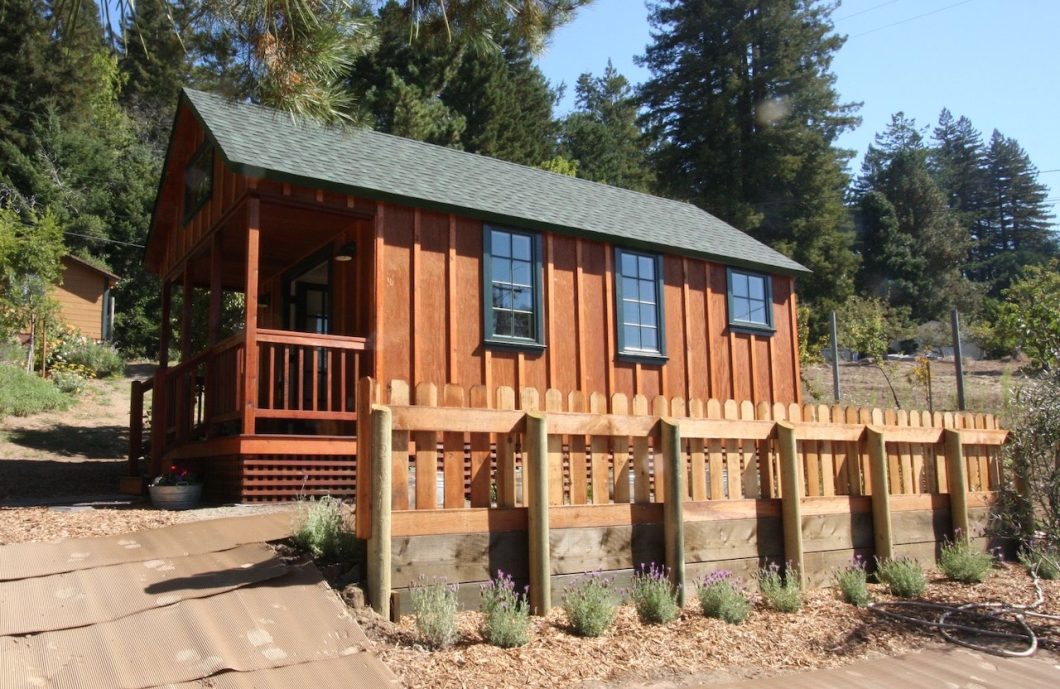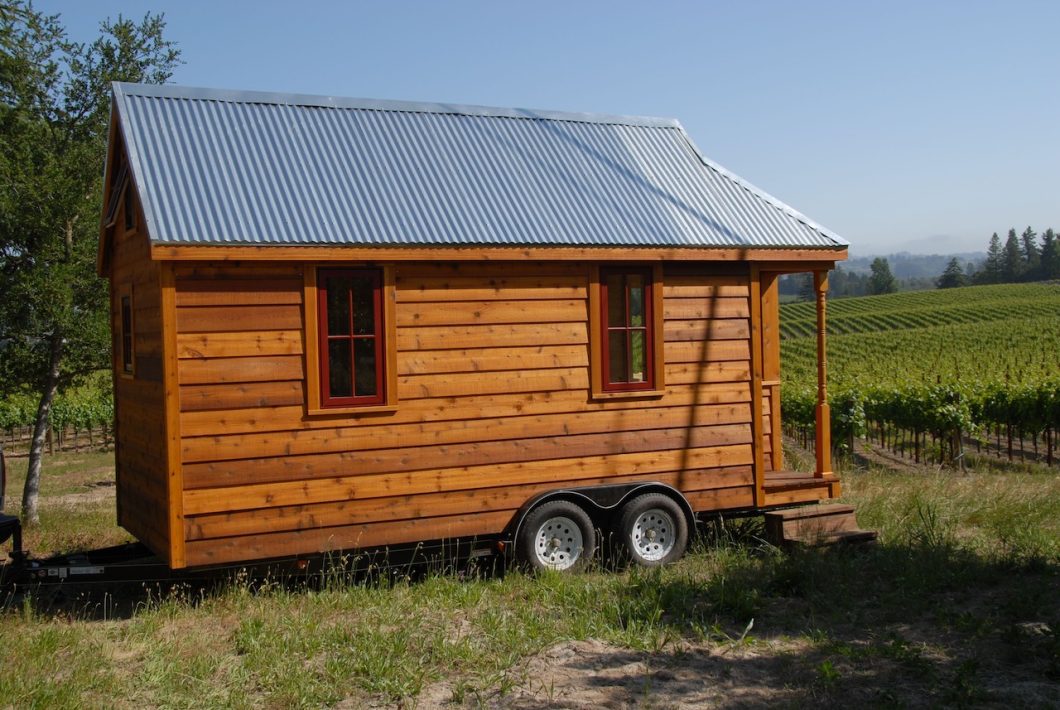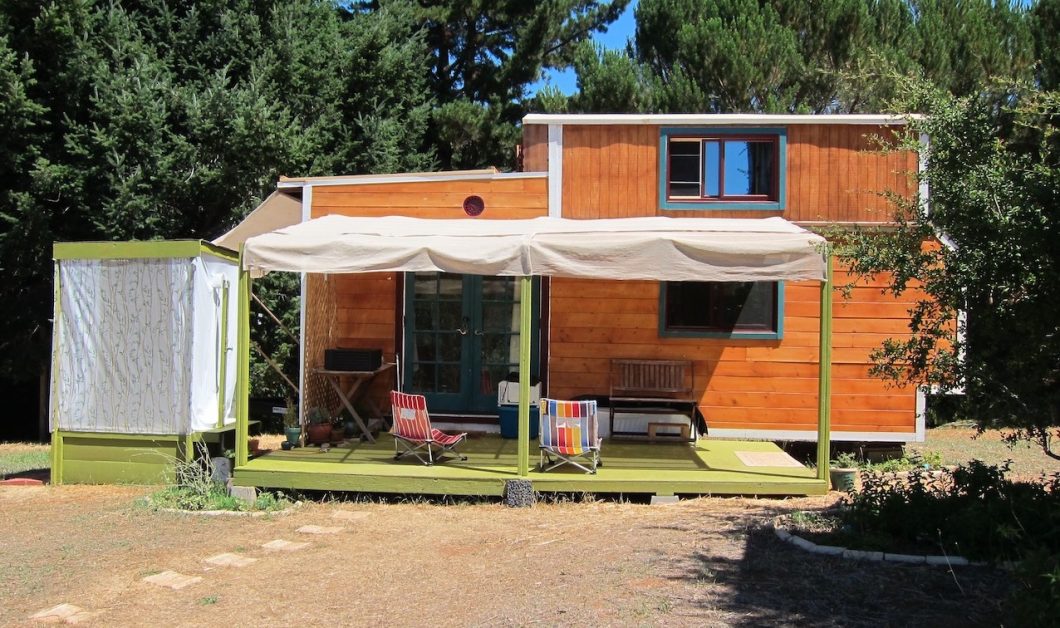Far too often, tiny home living is advertised to younger people wanting to go off the grid or lead more minimalistic lives.
While it’s important for younger generations to embrace those lifestyles, it’s just as important for seniors to understand how great living in a tiny house can be, and all of the benefits that come with it.
Whether you’re an empty-nester ready to downsize, you want a fresh start in a new location, or you want to mitigate some of the challenges that can typically come with aging, a tiny house could be the best solution.
Let’s take a closer look at the benefits of tiny houses for seniors, and why you might want to consider making a move as you get older.
A Lower Cost of Living
According to Rocket Mortgage, the average cost of a tiny house ranges from $30,000-$60,000. Obviously, they can be less or more depending on the amenities you choose. However, even at the higher end, the cost of living in a tiny home is going to end up being much less than in a traditional home.
It’s not uncommon for seniors to be on a fixed income, especially after they retire. Not only is purchasing a tiny house cheaper, but the overall cost of living will be less, too. The small size of tiny homes makes it easier to use less energy, cutting your utility costs quickly. Whether you’re on a budget or not, everyone can agree that saving money each month is something to be happy about.
You’ll also have less “stuff” when you live in a tiny house. Many seniors want to downsize after their kids have left home, and that can include donating or getting rid of many belongings and excess clutter. When you have less room for storage, you’re forced to get rid of the things you don’t need or want anymore. You’ll also spend less money buying more “stuff,” simply because you don’t have the space for it. Over time, this can be an eye-opening experience, allowing you to see how much money you wasted over the years on things you truly don’t need to be happy.

Maintaining Independence
As you age, you might face more struggles than you did in your younger years. Some of the most common health conditions seniors face include:
- Hearing loss
- Cataracts
- Mobility issues
- Osteoarthritis
- Diabetes
While staying in an assisted living facility is an option for some, many seniors want to age in place and stay comfortable in their own homes. Tiny home living helps to make that a more realistic possibility.
When you’re building a tiny home, you can design it with accessibility in mind. That includes installing wheelchair ramps, creating wide hallways and corners to easily move around, and setting things up in a way that allows you to have regular access to the supplies you need.
One of the great things about tiny houses is that they can be built almost anywhere. If you want to live on your own but still require some assistance, you can build your home in a central location that isn’t far from a caretaker or family member. It offers the best of both worlds, allowing you to maintain your independence and age comfortably on a budget, but providing a sort of “safety net” with someone nearby.
Staying Healthy and Active
Just because you’re a senior doesn’t mean you aren’t still active. These are your golden years, and you deserve to enjoy them as much as possible. Tiny home living can help with that in several ways.
First, because it’s typically cheaper to live in a tiny house, you can use that extra money to enjoy other things, like traveling. You can see the world without having to worry about a crippling mortgage holding you back.
Tiny home living can also inspire you to spend more time outdoors and be more physically active. Many tiny houses are built in rural or wooded areas, encouraging dwellers to get outside more often. Being out in nature is beneficial for everyone. However, for seniors, it can improve mental and physical health, helping with issues like
- Anxiety
- Depression
- Loneliness
- Stress
- Cognitive decline
Staying physically active is important for seniors if you want to maintain your overall well-being. Whether you take a daily hike around your property, start a garden, or go exploring with a friend or family member, being out in nature can be one of the best motivational tools to get moving.
Tiny home living isn’t just a trend. It’s also not just for young people. Whether you’re recently retired or you’re thinking about the next chapter of your life, you’ll quickly see the countless benefits of moving into a tiny house as a senior. Consider building a custom house of your own or doing your research on pre-existing properties, and enjoy your later years comfortably, quietly, and with your well-being in mind.


Amen to this article urging seniors to consider tinyhouses. Just before retiring, I had local Mennonite craftsmen build and spray-insulate a custom (offgrid) $3,700 8’×12′ tinyhouse-shell that I then finished, center-partitioned, and DIY-equipped with solar-electric power and rainharvesting for <$2.3K.. I daytime-heat with several 12V, 2.25", 100-watt-each miniheaters, daytime-STORE excess watts as nighttime bunkcubby-heat (in 14 gallons of under-bunk insulated water, its stored heat thermostatically ductblowered nightly into my bunkcubby.) My summertime 'cooling' system is cool underfloor air powerfully blown in at a floorgrate, with that, a reflective roof, solarpanels-canopies' 100%-sunSHADING on South & West sides,and highly-effective 'radiant' bodyheat-losses to a kept-cool interior; I can thusly even SHIVER when it's 96°F outdoors! Most of my electrical devices are 12V DC (easy to even convert many things to), and my 1,500W inverter powers my induction-cooker, powertools, powerbrush vac, and asthma nebulizer.. -No utility bills, no mortgage or (present) lot-rent, and I lack for nothing.. 🙂
As a young senior I am very interested in owning a small handicap accessible tiny house or small home on a SMALL lot where I can continue enjoying the outdoors. Because I am on a very limited income, I cannot afford to spend 400.00+ a month just for a lot rental. I would love to move to a “tiny home” community where we actually own the property where our home is located. Seems like this would be a niche market for some innovative builder.
THIS is the type of article I need to read.
Wish there were a group I could join specifically geared towards tiny house senior living!
I disagree. Most seniors can’t afford rent. In fact, I only know one senior, personally, that still owns and lives in her own home, the rest all live in extended family situations.
Investors are going to jump on this by pricing us out of land. There basically is NO housing “solution.” It’s inevitably downsizing your way to homelessness.